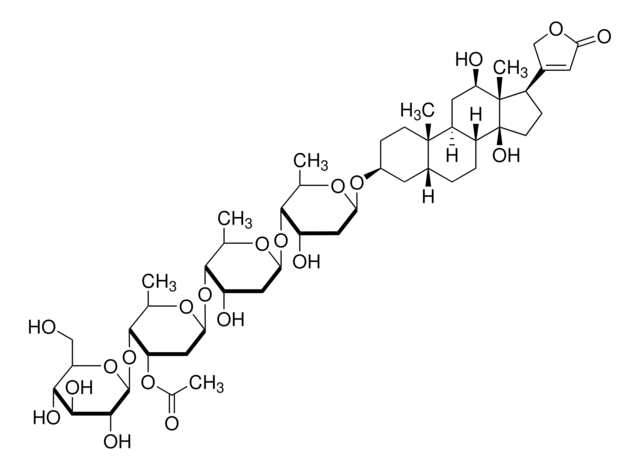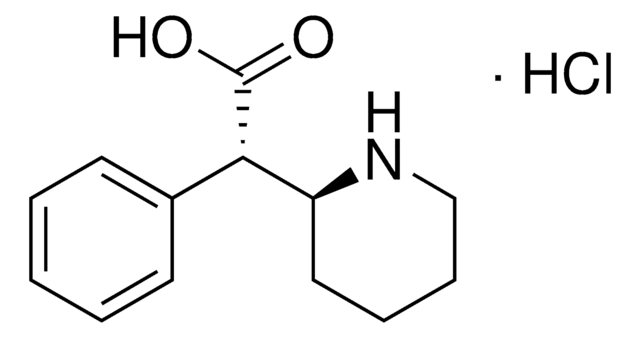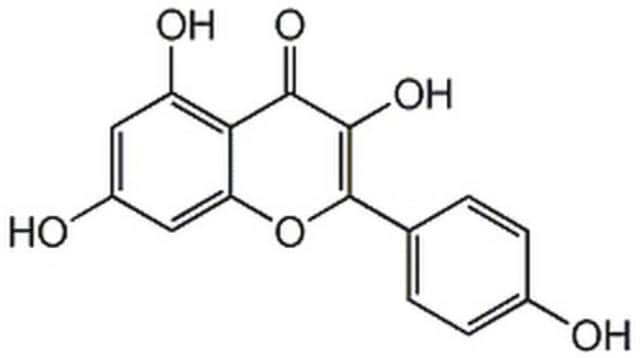H125
Harmalol hydrochloride dihydrate
monoamine oxidase inhibitor
About This Item
Produits recommandés
Contrôle du médicament
regulated under CDSA - not available from Sigma-Aldrich Canada
Pf
264-267 °C (dec.) (lit.)
Chaîne SMILES
Cl[H].[H]O[H].[H]O[H].CC1=NCCc2c1[nH]c3cc(O)ccc23
InChI
1S/C12H12N2O.ClH.2H2O/c1-7-12-10(4-5-13-7)9-3-2-8(15)6-11(9)14-12;;;/h2-3,6,14-15H,4-5H2,1H3;1H;2*1H2
Clé InChI
OYKGNQNESCZSHQ-UHFFFAOYSA-N
Actions biochimiques/physiologiques
Code de la classe de stockage
13 - Non Combustible Solids
Classe de danger pour l'eau (WGK)
WGK 3
Point d'éclair (°F)
Not applicable
Point d'éclair (°C)
Not applicable
Équipement de protection individuelle
Eyeshields, Gloves, type N95 (US)
Certificats d'analyse (COA)
Recherchez un Certificats d'analyse (COA) en saisissant le numéro de lot du produit. Les numéros de lot figurent sur l'étiquette du produit après les mots "Lot" ou "Batch".
Déjà en possession de ce produit ?
Retrouvez la documentation relative aux produits que vous avez récemment achetés dans la Bibliothèque de documents.
Notre équipe de scientifiques dispose d'une expérience dans tous les secteurs de la recherche, notamment en sciences de la vie, science des matériaux, synthèse chimique, chromatographie, analyse et dans de nombreux autres domaines..
Contacter notre Service technique







